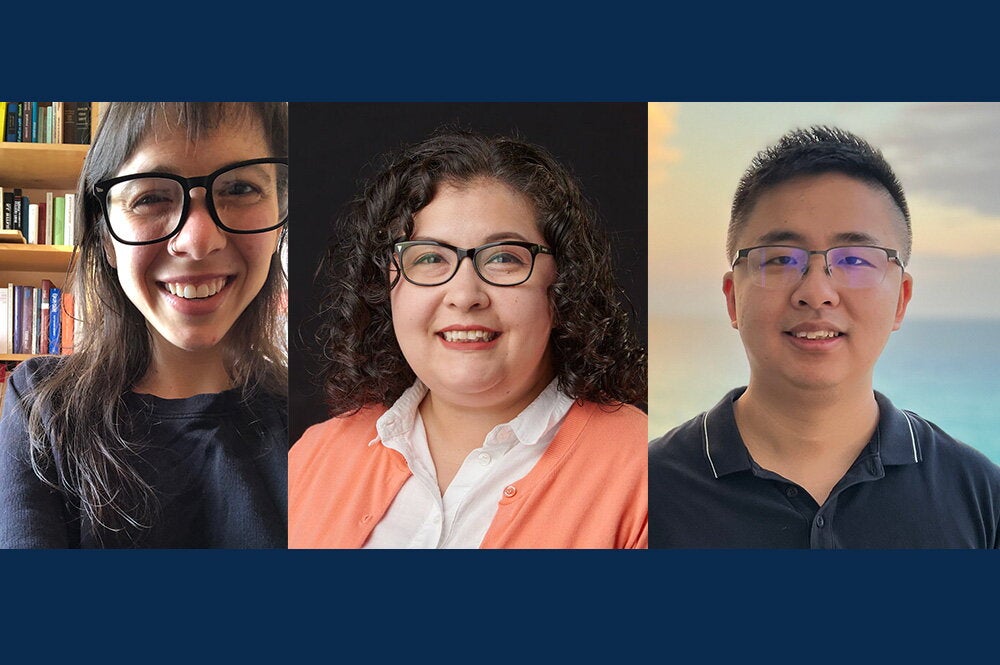

To many of us, the idea of testing brings to mind bright lights, biting pencils, filling ovals, and (hopefully) the sweet relief of proving that you know the material. Xun Yan, a professor of linguistics at U of I, however, wants to know more about testing and what they tell us about test-takers.
In 2021, he received the Educational Testing Service Test of English as a Foreign Language (TOEFL) Essentials New Scholar award, which is the highest achievement award for young scholars who study language testing. TOEFL is an English language standardized proficiency test taken by non-native speakers who wish to enter a university in an English-speaking country.
There are no easy answers in Yan’s field. We’re learning a lot from him, however, about the fairness of testing, what scores truly indicate, how well testing predicts the future academic performance of students, and how to make language assessments more effective and accessible.
What’s your area of expertise?
My area of specialization is language testing—in particular, speaking and writing assessment. My specific research interests include scale development and validation, rater behavior and training, psycholinguistic approach to language testing, assessment literacy for language teachers, and test score use in educational settings. In most of my research, I employ a largely linguistic approach to examining characteristics of speaking and writing performances to help better understand the construct of language proficiency, psychometric qualities of test scores, and validity and fairness evidences for language tests.
I received the (College of LAS) Lincoln Excellent Assistant Professor (LEAP) scholar award in 2018, for recognition of my research expertise in language testing and its impact on my service to campus—in particular, to the assessment of writing and speaking proficiency for international students who speak English as an additional language on the Illinois campus.
What are you currently researching?
I am currently working on several projects, which, although situated in different assessment and research contexts, all aim to innovate assessment methods used to measure language proficiency. In these projects, I examine the cognitive processes humans engage in when communicating in speech or writing and then translate these cognitive processes into constructs to be measured in language assessments. The ultimate goal of this line of research is to create language assessments that are more effective, efficient, and accessible.
Another line of my research focuses on the use of large-scale, standardized tests for admissions purposes in higher education contexts. I have helped numerous admissions officers and policy makers to better understand the meaning of language proficiency test scores and how standardized test scores predict academic performance of international students at university settings.
I am passionate about the nature of different assessment methods because I have a deep interest in the cognitive processes underlying composition and speech production during an assessment context and how those processes resemble or differ from language performance in real-world contexts. Exploration along this line of inquiry affords me opportunities to work with scholars from different fields (e.g., learning science, computer science, and educational psychology) and see language proficiency from different perspectives. This is the most rewarding part of my research work and motivates me to continue exploration in language assessment.
What impact will your work have on your field and the community?
I hope that my work can have a real impact on language assessment research and practice. Since my research and scholarship has benefited tremendously from collaboration with different members in the UIUC local context, I hope my work can be an encouragement and inspiration for other language testers to examine local language assessment issues, develop context-specific solutions, and contribute back to the local community. To me, the best way of promoting diversity in language testing scholarship is to pay more attention to the local assessment context and discover unique assessment problems that have deeper impacts on language teaching and learning.
What do you enjoy most about teaching?
What I enjoy most about teaching at Illinois is that I have the fortune to work with talented undergraduate and graduate students who are interested in language studies. I take pride when students apply principles of language testing in their professional context to enhance the quality of teaching, learning, assessment, and decision making. Over the past few years, I saw an increase in the interest of assessment among students from different departments, such as linguistics, different foreign language programs, and educational psychology. This also contributes to the growing diversity and innovation in language testing research at Illinois.
Please describe your proudest achievement.
I take pride in working with wonderful students at Illinois and in seeing them apply assessment knowledge and skills to solve real-world problems. When I received the TOEFL Essentials New Scholar award, I was very proud that I could represent Illinois in terms of scholarship in the international community of language testing. That said, I am prouder when I see my graduate students win best paper awards at international language testing conferences. The Department of Linguistics at Illinois has become a popular destination for students interested in studying language testing around the world. I consider this as my proudest achievement.
Editor's note: Visit here for more LAS Experts profiles.


